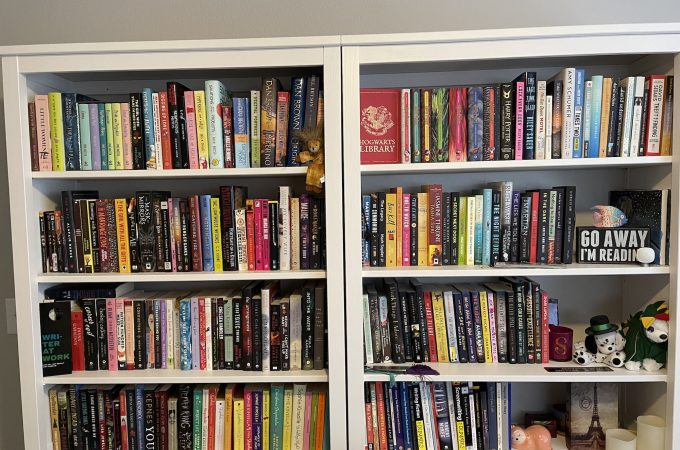
Popular novel themes to write in your story
Whenever I hear or read about novel themes I always think of that scene from A Christmas Story where the teacher assigns the students an essay and all the kids groan, except for Ralphie who sees this as his opportunity to make his case for his Red Ryder BB Gun.
I think many writers approach themes in novels the same way. Some are immediately put off having to worry about a theme and others like having something that pulses beneath the surface of every scene.
Themes are what resonates with the reader long after they’ve closed the book and by having a concise theme, readers easily understand the moral of the story if you will and understand why it was worthwhile going on the journey with the protagonist.
If you’re like Ralphie’s classmates and struggling to find your theme in your story, here are some examples of themes that can be written over and over again and readers will never tire of them.
8 universal themes for novels

1. Love
There’s a whole genre of books dedicated to love and romance so you know this theme is quite popular! We like stories that show us characters that are finding love, or learning to deal with lost love, learning how to love again, or even enjoying the love between family and friends.
As The Beatles espoused, “All You Need is Love” and many readers agree. The theme of love and its power are themes that will remain eternal as it’s a major driving force for most people. We aren’t simply content with finding love in our own lives, we want to read about epic tales of romance and love being worth the fight.
2. Belonging
Ah, the classic coming of age story where the protagonist finds their place in the world. Similar to love, we all want to feel the sense of belonging or that we’re accepted or even admired.
The misfits, the chosen ones, or even the antiheroes can rely on the theme of belonging to make their stories work. We root for others to feel complete and like they’ve found their people. A great example of this is Harry Potter as he starts out not fitting in with Muggles but then realizes he’s not supposed to–he belongs to the magical community.
3. Prejudice
While we love the happy ending of someone finding where they belong, we also know that the characters aren’t done changing. Just as we aren’t. We don’t reach a certain age and stop learning or changing who are and prejudice stories are a great theme for showing some really challenging changes.
This theme is basically the adult version of the coming of age story as we realize we still have some fears to overcome, we still have to learn to see things differently, we still have to admit we’re sometimes wrong, and we still have to do what’s right even if it’s not easy.
Great examples of prejudice stories include The Hate U Give and Pride and Prejudice (I mean, it’s in the name!).
4. Breaking free
This is similar to prejudice but expands to encompass a much bigger world. These stories are often individual vs. society conflicts where the protagonist is at odds with the society they live in and realize things need to seriously change–and it could be dangerous to rebel and start that change. But, the protagonist has their convictions that it must be done and the old way of thinking no longer makes sense and so they have to break free of their world to make a better one.
Some examples of this theme include Nineteen Eighty-Four, Fahrenheit 451, and The Giver.
5. Life and death
They say you’re guaranteed two things in life: death and taxes. So it makes sense that many stories deal with the theme of life and death. Reading allows us to live so many lives beyond our own and can act as a guide toward ways we want to live our own lives.
I think a common thread in these kinds of stories is the idea of forgiveness or letting go. Learning to accept what is instead of pining over the past or dreaming your life away. I think a good example of the life and death theme is Twenties Girl, where a ghost has to teach a living person how to move on and live their life to the fullest.
The life and death theme gives us hope that we can still make our lives what we want them to be and that when the time comes, we won’t be afraid of dying as we’ve lived exactly as we wanted to.
I’ll also put survival as a theme that falls into this category as the characters are literally fighting for their lives to avoid death or to make their lives mean something. Examples of survival stories include Life of Pi and Room.
6. Good vs. evil
A tale as old as time: the big battle between good and evil. This theme will always be relevant to any generation of readers. We need to see good triumph over evil and we need to see courageous characters persevere and fight for what’s right.
I’d even lump the theme of power and corruption into this category as that’s where the evil side tends to come from. We see what happens to people who let power control them and how it will ultimately lead to destruction at the hands of the good guys.
Two other sub-categories of good vs. evil to me are the themes of war and revenge. They may not be as black and white as the battle of good and evil in Harry Potter is, but war and revenge stories definitely have who we should consider the good guys and the bad guys, even if the good guy is doing bad guy behavior.
7. Fate vs. free will
This one is similar to good vs. evil and the theme of belonging as it asks if our lives are charted by destiny or do we control our own fate? Again, Harry Potter covers this theme well as Harry is marked as the chosen one but does he have any choice in what happens? Does he have any control in being the chosen one?
While it’s not a book, a good example of this is the TV show Supernatural. In later seasons we find out that Dean and Sam’s lives have pretty much been written for them and they were basically acting out a script without knowing it. But can they change that? Can they come up with the lines themselves?
Many people seem to love the idea that people are destined to meet in love stories but that there’s free will in every other aspect of our lives. This can be a really fun theme to play around with that opens the door for some big questions.
8. Adventure
This theme is also similar as belonging or a coming of age story but tends to be much more grand or set in a fantasy world. We want to go on an adventure with Frodo as he leaves the Shire for an epic journey or in the movies we want to find out what happens as Luke Skywalker goes out to train as a Jedi.
It’s time to leave the familiar behind and embrace adventure and prove to the world and ourselves who we really are.
Keep in mind that you don’t have to have a scene where your characters sit down and discuss what the novel’s theme is to make it hit home. If you’ve done your job right, readers will know at least one of the themes by the time the story wraps up.
What other themes do you think are universal? Share your opinion in the comments below!




